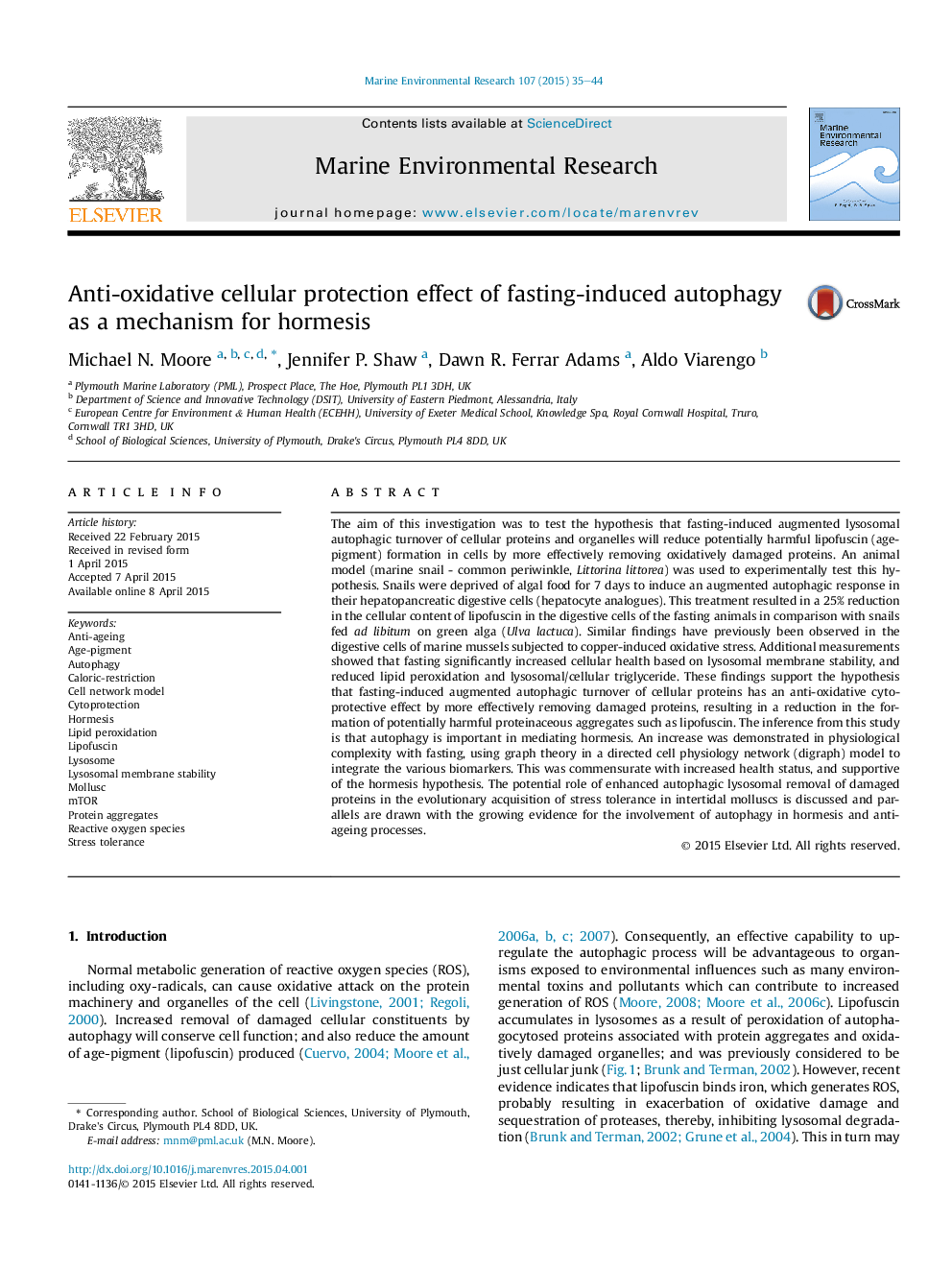| کد مقاله | کد نشریه | سال انتشار | مقاله انگلیسی | نسخه تمام متن |
|---|---|---|---|---|
| 4550702 | 1627575 | 2015 | 10 صفحه PDF | دانلود رایگان |
• Fasting induced autophagy in a marine snail model.
• Reduced lipid peroxidation, lipofuscin and lipid; and increased lysosomal stability.
• Fasting increased cellular health via an autophagic cytoprotective mechanism.
• Autophagy is important in mediating hormesis is supported by mathematical modelling.
• Autophagic removal of damaged proteins in the evolution of stress tolerance.
The aim of this investigation was to test the hypothesis that fasting-induced augmented lysosomal autophagic turnover of cellular proteins and organelles will reduce potentially harmful lipofuscin (age-pigment) formation in cells by more effectively removing oxidatively damaged proteins. An animal model (marine snail - common periwinkle, Littorina littorea) was used to experimentally test this hypothesis. Snails were deprived of algal food for 7 days to induce an augmented autophagic response in their hepatopancreatic digestive cells (hepatocyte analogues). This treatment resulted in a 25% reduction in the cellular content of lipofuscin in the digestive cells of the fasting animals in comparison with snails fed ad libitum on green alga (Ulva lactuca). Similar findings have previously been observed in the digestive cells of marine mussels subjected to copper-induced oxidative stress. Additional measurements showed that fasting significantly increased cellular health based on lysosomal membrane stability, and reduced lipid peroxidation and lysosomal/cellular triglyceride. These findings support the hypothesis that fasting-induced augmented autophagic turnover of cellular proteins has an anti-oxidative cytoprotective effect by more effectively removing damaged proteins, resulting in a reduction in the formation of potentially harmful proteinaceous aggregates such as lipofuscin. The inference from this study is that autophagy is important in mediating hormesis. An increase was demonstrated in physiological complexity with fasting, using graph theory in a directed cell physiology network (digraph) model to integrate the various biomarkers. This was commensurate with increased health status, and supportive of the hormesis hypothesis. The potential role of enhanced autophagic lysosomal removal of damaged proteins in the evolutionary acquisition of stress tolerance in intertidal molluscs is discussed and parallels are drawn with the growing evidence for the involvement of autophagy in hormesis and anti-ageing processes.
Journal: Marine Environmental Research - Volume 107, June 2015, Pages 35–44
